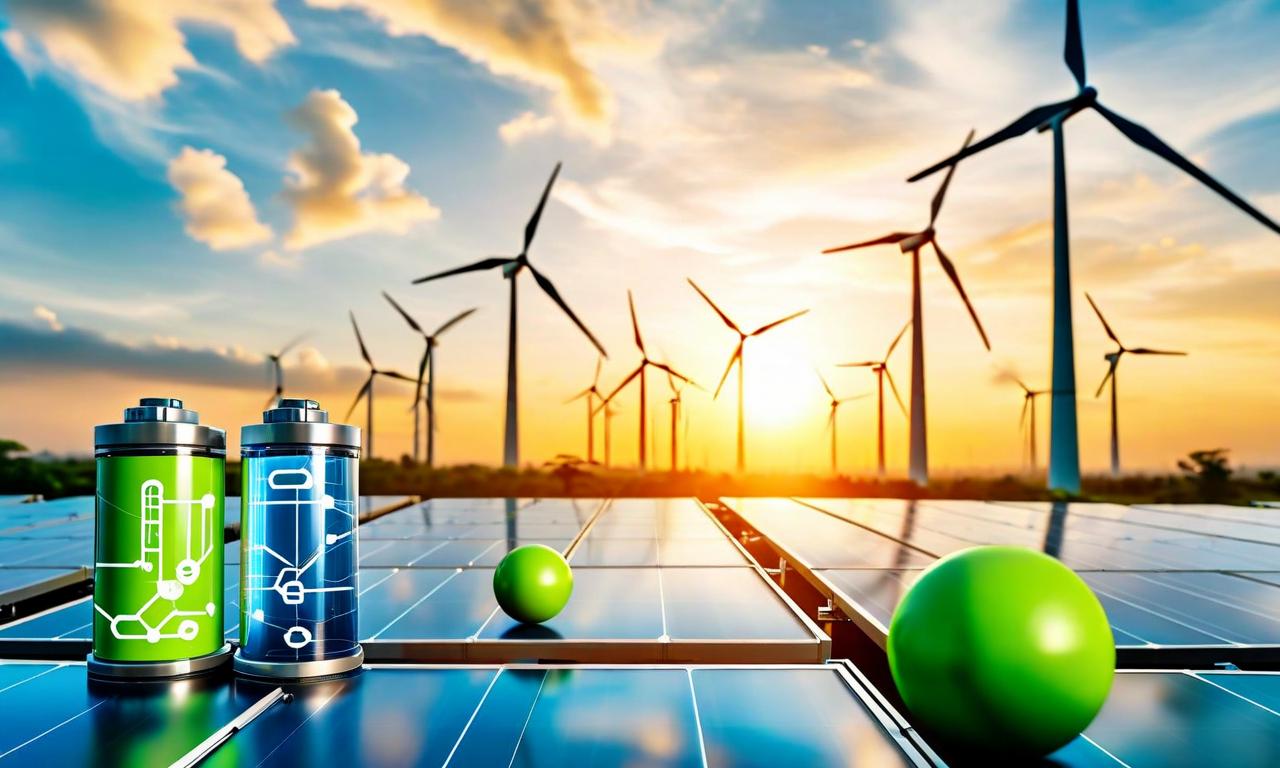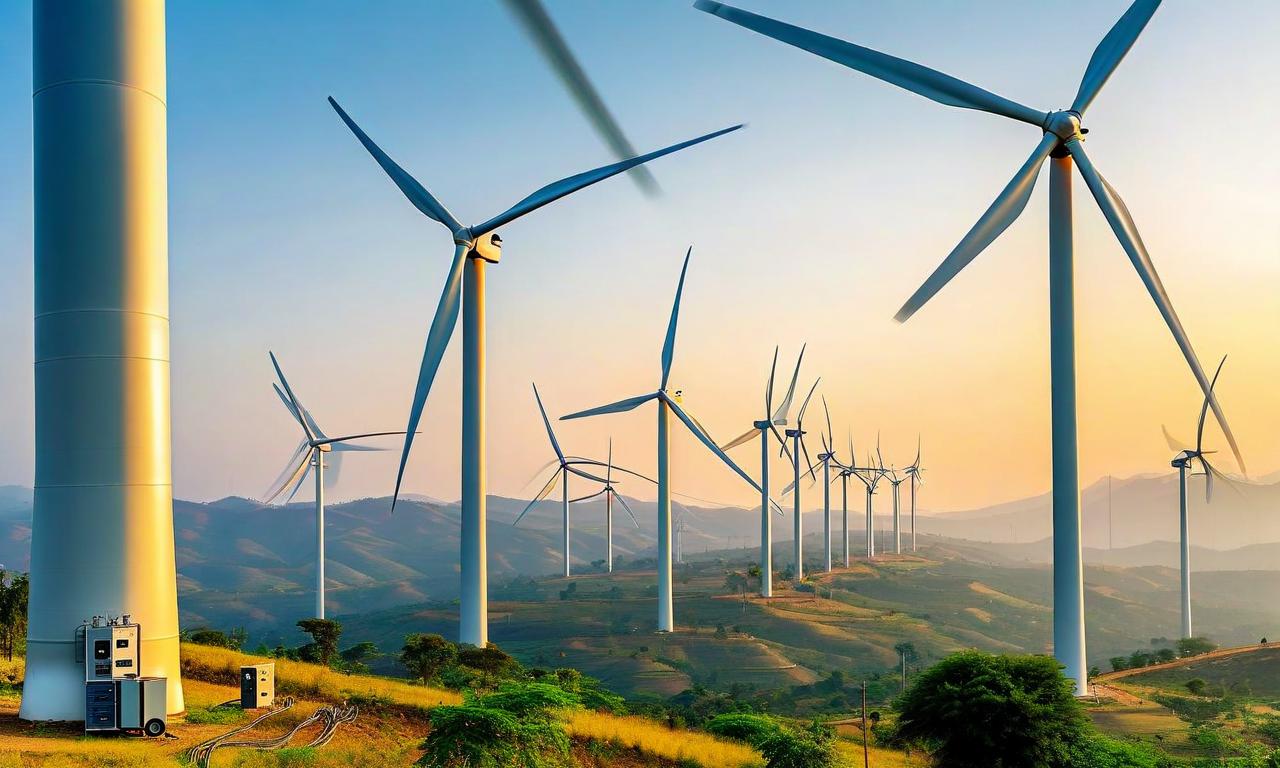India Mulls GST Relief and Grid Fee Waiver Extensions for Renewable Energy Sector
The Ministry of New and Renewable Energy (MNRE) is planning key policy changes to support solar and wind power projects. These include potential GST restructuring for equipment manufacturers, case-by-case extensions of inter-state transmission system (ISTS) charges waiver for delayed projects, and continued support for emerging technologies like energy storage, green hydrogen, and offshore wind. The ministry also notes an increasing trend towards firm and dispatchable renewable energy bids due to lower battery costs and growing adoption of solar-wind hybrid projects.

*this image is generated using AI for illustrative purposes only.
India's renewable energy sector may soon receive a boost as the government considers key policy changes to support solar and wind power projects. The Ministry of New and Renewable Energy (MNRE) is taking proactive steps to address industry concerns and promote the growth of clean energy in the country.
Potential GST Restructuring
The MNRE has announced plans to meet with solar and wind equipment manufacturers to assess their demands for GST restructuring. This move comes as part of the government's efforts to support the renewable energy industry and potentially reduce costs for project developers. Following these consultations, the ministry will forward its recommendations to the Finance Ministry for consideration.
Extension of ISTS Charges Waiver
In a significant development for the sector, solar and wind projects may receive case-by-case extensions of the inter-state transmission system (ISTS) charges waiver. The current waiver, which expires on June 30, 2025, could be extended for projects that faced commissioning delays due to circumstances beyond their control. Developers seeking these extensions must file their requests with the Central Electricity Regulatory Commission (CERC).
Continued Support for Emerging Technologies
The government's commitment to emerging clean energy technologies remains strong. The ISTS waiver continues to be in effect for:
- Energy storage projects until 2028
- Green hydrogen projects until 2030
- Offshore wind projects until 2032
These extended waivers are expected to encourage investment and development in these cutting-edge renewable energy sectors.
Shift Towards Firm and Dispatchable Renewable Energy
The ministry has noted an increasing acceptance of firm and dispatchable renewable energy bids. This trend is attributed to lower battery costs, which have made energy storage more economically viable. Additionally, there is a growing adoption of solar-wind hybrid projects over standalone installations, as these hybrid systems offer improved capability for round-the-clock power supply.
The proposed policy changes and observations from the MNRE indicate a concerted effort to address challenges faced by the renewable energy sector while promoting more reliable and efficient clean power solutions. As India continues its transition towards a greener energy mix, these measures could play a crucial role in accelerating the adoption of solar and wind power across the country.
























